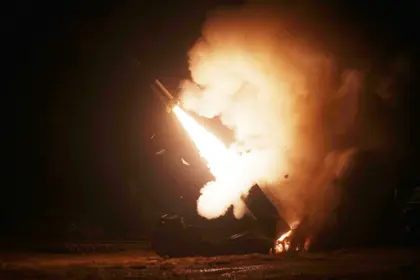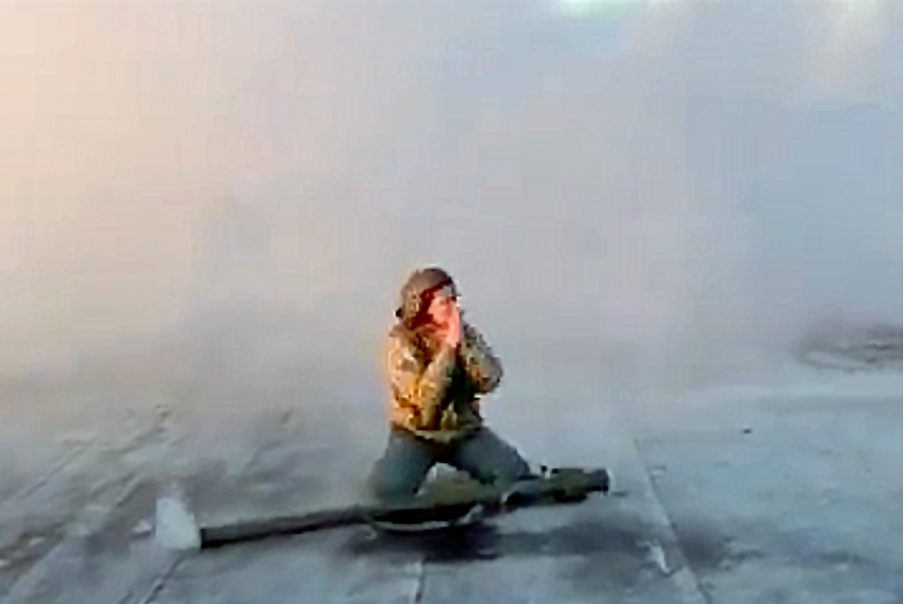A US State Department spokesperson confirmed that Washington has already sent longer-range missiles to Kyiv “for use inside its territory,” and that the weapons arrived in the country this month, AFP reported.
“I can confirm that the United States provided Ukraine with long-range ATACMS at the president’s direct direction,” spokesperson Vedant Patel said at a conference on Wednesday.
JOIN US ON TELEGRAM
Follow our coverage of the war on the @Kyivpost_official.
The Army Tactical Missile Systems (ATACMS) sent to Ukraine were not part of the $61 billion aid package signed into law this week, nor the immediately executed $1 billion tranche of that to be sent, but rather part of an earlier March aid package approved for Ukraine’s defense against the full-scale Russian invasion, now in its third year.
The Pentagon said on Tuesday that arms deliveries from that latest package could arrive “within days.”
Some ATACMS missiles can hit targets up to 190 miles away, with others reaching about half of that range. The Defense Department confirmed that the longer-range model was the version delivered earlier this month.
The delivery was kept quiet, the State Department said, “to maintain operational security for Ukraine at their request.”
US admits that Avdiivka was lost due to delays in foreign aid
US National Security Advisor Jake Sullivan said on Wednesday at a briefing that the critical Armed Forces of Ukraine (AFU) stronghold of Avdiivka was surrendered to Russia this winter because of a lack of ammunition stemming from delays in the passage of foreign aid in Washington.

US Approves Antipersonnel Mines for Ukraine
“The consequences of the delay have been felt in Ukraine,” he told the White House briefing room. “Over the past six months, Ukraine has had to ration ammunition. That has resulted in the loss of some territory in the east, including the city of Avdiivka.”
Sullivan said that Moscow’s forces may not have made their last gains in “the coming weeks,” as defense forces wait for ammo deliveries and units can regroup and set strategy.
“It is possible Russia could make additional tactical gains in the coming weeks,” Sullivan said. He pointed out, in particular, the increasing pressure in Chasiv Yar and towns west of Avdiivka. “The fact is, it is going to take some time for us to dig out of the hole that was created by six months of delay before Congress passed the supplemental,” he said.
VIDEO from near the village of Orlivka in the Avdiivka direction, showing a Ukrainian tank from the 3rd Separate Assault Brigade, firing at Russian positions at a range of app 2km away. #Ukraine #Ukrainewar #Ukraine Russiawar #Russia pic.twitter.com/f131zA5Vmb
— raging545 (@raging545) April 24, 2024
Zelensky claims Moscow intends to sabotage June peace summit
Speaking with international envoys and representatives of organizations within Ukraine, President Volodymyr Zelensky stated on Wednesday that the Kremlin has formulated “specific” plans to sabotage a global peace summit scheduled for June in Switzerland.
The conference is slated for June 15 and 16 at the Bürgenstock resort, just outside the Alpine city of Lucerne. Leaders from the G7, other EU member nations, and representatives from India, China, and other countries were invited.
“We have precise intelligence, specific data, that Russia not only wants to disrupt the peace summit, but also has a specific plan on how to do it, how to reduce the number of participating countries, how to act so that there is no peace for even longer,” the president said.
Russian oil refining hits lowest output levels in about a year
The Institute for the Study of War (ISW) reported this week that “Ukrainian drone strikes and recent flooding in Russia have taken Russian oil refining to an 11-month low.”
“Bloomberg News reported this week that as of mid-April, Russia processed 5.22 million barrels of crude oil per day, 10,000 fewer barrels than the average in early April,” ISW analysts wrote. “Russia has reportedly processed 1.23 million barrels of crude oil per day since January at refineries that Ukrainian forces previously struck with drones, a 280,000-barrel-per-day decrease from before Ukrainian forces started targeting Russian oil refineries in late January 2024.”
The think tank calculated that Kyiv’s drone strikes had the effect of knocking down Moscow’s refining capacity by 14 percent since the beginning of this month. They added, however, that global prices for refined products will unlikely move much because of the strikes or floods, as Russia’s global market share of these products is relatively small.
“Future Ukrainian drone strikes may disable and disrupt more of Russia’s refining capacity and inflict critical constraints on Russian refining that begin to substantially impact Russia’s production of distillate products,” the analysts wrote.
Don’t you just love Karma?
— Sytheruk 🇬🇧 🇺🇦 (@SythUK) April 16, 2024
Here is the result at the other end of a drone that Ukraine flew into Russia.
It struck a Russian oil refinery and , well, it left a scratch … 😂 pic.twitter.com/Tq6jNvvpPy
Russia says 29 abducted children returning to Ukraine
According to AFP, quoting a Russian children’s rights official on Wednesday, 48 children might be returning to their Ukrainian and Russian families soon.
Moscow’s commissioner for children’s rights Maria Lvova-Belova said that, after an agreement with her Ukrainian counterparts, 29 abducted children will return to Ukraine, while 19 will go back to Russia. Ukrainian officials would not confirm that announcement.
“For the first time in a face-to-face format, we held talks with the Ukrainian side,” Lvova-Belova said. She is wanted by the International Criminal Court (ICC) on charges related to child abductions.
Both sides supposedly met with Qatari mediators in Doha. Still, Ukraine’s parliamentary human rights commissioner Dmytro Lubinets told AFP he can’t confirm the information, and added the two countries “don’t have any direct communication on this case.”
AFP also reported that, since July 2023, Qatar has helped bring back dozens of Ukrainian children taken to Russia and occupied territories during Moscow’s invasion, and were given medical and psychiatric assistance while in Doha.
You can also highlight the text and press Ctrl + Enter









